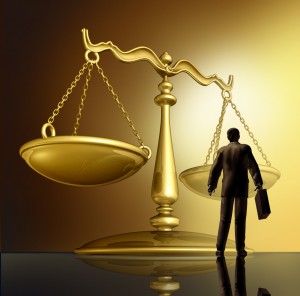It’s not as if one would expect the defense attorneys who secured the dismissal of various crimes against humanity charges against Kenyan President Uhuru Kenyatta at the International Criminal Court last year to be sending metaphorical roses to Chief Prosecutor Fatou Bensouda through the media, but the comments recently recorded by The Independent go a long way to elucidating the structural issues within the way the Court does business — and how a mission to achieve justice can quickly morph into the sort of campaign of self-congratulations that irrevocably undermine it.
Kenyatta’s team claimed that prosecution witnesses had made up their accounts for personal gain, and they fell apart under the scrutiny of the £1m-plus investigation on behalf of one of the continent’s wealthiest men. “It needs a new director of investigations [for the ICC] to subject their procedures to the microscope from top to bottom and put it in a 21st-century context,” said Gary Summers, part of the legal team for Kenyatta. “[It was] just very, very amateur with a lack of professionalism and a lack of rigour”…
“Everybody wanted to have prosecuted and convicted a senior African politician to justify their institution,” said Kenyatta’s lawyer, Steven Kay QC. “Because it was an African leader, as far as they were concerned, they didn’t have to provide the same standards as they would do in other cases.”
Bensouda, naturally, interprets the state of play quite differently, blaming Kenyan government’s lack of cooperation for the debacle.
Unfortunately for her, as my colleague Ibtihal Khidir points out, this nefarious spin does not exactly jibe with the statement released after the charges were dropped by the International Criminal Court Trial Chamber: “The Chamber noted factors including the Prosecution’s admission that the evidentiary basis remains insufficient to support a conviction and the Prosecution’s concession that it remains speculative whether the information sought in the cooperation request would, even if obtained, be sufficient to support the charges…”
And, what, precisely, does that translate to so far as the actual evidence is concerned?
In papers outlining her case, the prosecutor claimed that Kenyatta, then a senior politician, chaired a meeting and dished out money to pay criminal gangs to prepare for “war” against rivals who questioned the re-election in 2007 of his presidential predecessor, Mwai Kibaki.
The meeting was followed by violent clashes between rival tribes involving rape, beheadings and forcible circumcision.
Details of the meeting were outlined by a witness named only as OTP-12, but the case was dropped before his account could be tested in court.
The IoS has seen details of an investigation that uncovered evidence showing that the witness had probably never been there.
Lawyers tested the witness’s claims by tracking the movements of the people who were supposed to have been at the meeting by analysing calls made and received from their mobile phones.
They can be located to within a distance of 500 metres by working out the nearest telecoms mast when calls or texts were made. Phones and sim cards were retrieved from 18 key players, along with the details of more than 1,100 contacts that they held. The phone-call data was thought to have been destroyed, but an expert employed by both sides found this on a back-up computer in the damp and flooded office of Africa’s biggest telephone company.
The expert harvested nearly half a million call records. “It was a whole lot of ones and zeros until we started to look at it,” said Nicholas Connon of Quintel Intelligence, which examined the data.
The data was plotted on to a map showing the positions of the key players’ phones on the day of the meeting at Nairobi’s State House, where Kibaki was inaugurated. Witness 12 claimed that he had been there between 3pm and 8pm on the day, but the time lapse reconstruction showed his phone was up to 9.3km away during the key times — indicating he was never at the meeting.
Fantastically horrific atrocities occurred in Kenya during the 2007 election. This is undeniable. And perhaps Kenyatta or one or more of his deputies were even involved somehow. The problem is when you place the responsibility for sorting those questions out into the hands of a politicized transnational body that does not observe basic due process rights; a body that appears to run investigations more in pursuit of press release fodder than truth; a body that fixates on Africa while turning a blind eye to the injustices that occur elsewhere in the world under the auspices of the Court’s benefactors — well, then, the glaring lack of credibility and obvious bias cast a pall over even potentially legitimate accusations and charges.
Justice thwarting conspiracy theories can thrive when one is at the mercy of a dishonest broker.

